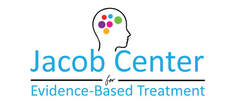Behavior ProblemS & Parent Training
Behavioral therapy is an evidence-based treatment for youth with behavior problems. Behavior problems are often described as oppositional defiant behaviors or disorders of conduct. Treatment typically includes behavioral modifications by parents/caregivers, in which parents learn how to establish clear expectations, implement appropriate rewards and consequences, and effectively respond to children's behavior to facilitate the desired changes. Treatment also typically incorporates methods to enhance the parent-child relationship so that children are more receptive to parental expectations and rules. Our clinicians use evidence-based methods, such as Parent-Child-Interaction Therapy (PCIT) and Parent Management Training (PMT) to give families the skills to manage maladaptive behavior.
Oppositional Defiant Disorder is characterized by a pattern of negativistic, hostile, and defiant behavior during which the individual often loses temper, often argues with adults, often actively defies or refuses to comply with adults' requests or rules, often deliberately annoys people, often blames others for his or her mistakes or misbehavior, is often touchy or easily annoyed by others, is often angry and resentful, and/or is often spiteful or vindictive. The behavior problems cause clinically significant impairment in social, academic, or occupational functioning.
Conduct Disorder is characterized by a repetitive and persistent pattern of behavior in which the basic rights of others or major age-appropriate societal norms or rules are violated. Conduct disorder may include aggression to people and animals (e.g., often bullies, threatens, or intimidates others; often initiates physical fights; used a weapon that can cause serious physical harm to others; has been physically cruel to people; has been physically cruel to animals; has stolen while confronting a victim; has forced someone into sexual activity), destruction of property (e.g., has deliberately engaged in fire setting with the intention of causing serious damage; has deliberately destroyed others' property), deceitfulness or theft (e.g., has broken into someone else's house, building, or car; often lies to obtain goods or favors or to avoid obligations; has stolen items of nontrivial value without confronting a victim), and/or serious violations of rules (e.g., often stays out at night despite parental prohibitions; has run away from home overnight; is often truant from school).
School Refusal occurs when a child refuses to go to school on a regular basis, or exhibits problems staying in school.
Oppositional Defiant Disorder is characterized by a pattern of negativistic, hostile, and defiant behavior during which the individual often loses temper, often argues with adults, often actively defies or refuses to comply with adults' requests or rules, often deliberately annoys people, often blames others for his or her mistakes or misbehavior, is often touchy or easily annoyed by others, is often angry and resentful, and/or is often spiteful or vindictive. The behavior problems cause clinically significant impairment in social, academic, or occupational functioning.
Conduct Disorder is characterized by a repetitive and persistent pattern of behavior in which the basic rights of others or major age-appropriate societal norms or rules are violated. Conduct disorder may include aggression to people and animals (e.g., often bullies, threatens, or intimidates others; often initiates physical fights; used a weapon that can cause serious physical harm to others; has been physically cruel to people; has been physically cruel to animals; has stolen while confronting a victim; has forced someone into sexual activity), destruction of property (e.g., has deliberately engaged in fire setting with the intention of causing serious damage; has deliberately destroyed others' property), deceitfulness or theft (e.g., has broken into someone else's house, building, or car; often lies to obtain goods or favors or to avoid obligations; has stolen items of nontrivial value without confronting a victim), and/or serious violations of rules (e.g., often stays out at night despite parental prohibitions; has run away from home overnight; is often truant from school).
School Refusal occurs when a child refuses to go to school on a regular basis, or exhibits problems staying in school.
Providing Evidence-Based Treatment for Obsessive-Compulsive Disorder (OCD), Tourette's Disorder/Tics, Trichotillomania, Body Dysmorphic Disorder (BDD), Hoarding, Skin Picking/Excoriation Disorder, Anxiety Disorders, and Phobias. Boca Raton office is easily accessible from Palm Beach County & South Florida (Jupiter, Palm Beach Gardens, West Palm Beach, Lake Worth, Boynton Beach, Delray Beach, Boca Raton, Lighthouse Point, Deerfield Beach, Pompano Beach, Ft. Lauderdale, and Miami).
Copyright © 2015-2024 Marni L. Jacob, Ph.D., LLC
Jacob Center for Evidence-Based Treatment
7900 Glades Road, Suite 615, Boca Raton, FL 33434
(561) 290-9080
Copyright © 2015-2024 Marni L. Jacob, Ph.D., LLC
Jacob Center for Evidence-Based Treatment
7900 Glades Road, Suite 615, Boca Raton, FL 33434
(561) 290-9080

